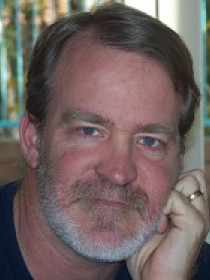
John H. Evans
Professor of Sociology and Associate Dean of Social Sciences, University of California-San Diego
Chapter Member: San Diego SSN
Areas of Expertise:
Connect with John
About John
Evan's research focuses on politics, religion, science, and ethics. Originally trained as a sociologist of religion and throughout his career, he has been focused on the abstract human concerns often addressed by Western religions such as the nature of the human, inter-generational responsibility, and societal value pluralism.
Contributions
Are Religious Americans Opposed to Science?
Key Findings Brief,
In the News
Opinion: "The Road to Enhancement, via Human Gene Editing, is Paved with Good Intentions," John H. Evans, The Conversation, November 27, 2018.
Guest on Valley Public Radio, March 25, 2015.
Guest on Capital Public Radio, March 23, 2015.
Quoted by Tia Ghose in "Evolution Deniers Believe in 'Smorgasbord' of Science," Live Science, January 29, 2015.
Opinion: "Science and Religion: A False Divide," John H. Evans, Los Angeles Times, October 10, 2011.
Research discussed by , in "First Synthetic Cell Created by Scientists," San Diego Union Tribune, May 21, 2010.
Publications
"Growing Social and Moral Conflict between Conservative Protestantism and Science" Journal for the Scientific Study of Religion (forthcoming).
Shows that over the past 25 years conservative Protestants have become increasingly opposed to the social and moral influence of scientists in public debates, but not necessarily to the fact-claims of scientists.
"The History and Future of Bioethics: A Sociological View" (Oxford University Press, 2012).
Explains where the field of “bioethics” came from, the origins of the split between conservative and liberal bioethicists in American politics, and how to heal this split.
"Epistemological and Moral Conflict between Religion and Science" Journal for the Scientific Study of Religion 50, no. 4 (2011): 707-727.
Shows that the religiously devout, including conservative Protestants, are only opposed to a few scientific claims, but are more broadly opposed to the social and moral influence of scientists in American politics.
"Contested Reproduction: Genetic Technologies, Religion, and Public Debate" (University of Chicago Press, 2010).
Describes why religious people are disproportionately opposed to reproductive genetic technologies and shows that there is much more agreement between liberals and conservatives than is commonly assumed.
"Cooperative Coalitions on the Religious Right and Left: Considering the Resilience of Sectarianism" Journal for the Scientific Study of Religion 45, no. 2 (2006): 195-215.
Shows that conservative religious people are more wary of the public influence of each other than are liberal religious people, suggesting limits to a broad “religious right.”
"Have Americans’ Social Attitudes become More Polarized?" (with ). American Journal of Sociology 102, no. 3 (1996): 690-755.
Shows that there was essentially no increase in polarization in public opinion toward social/moral issues from the early 1970s up to 1995.